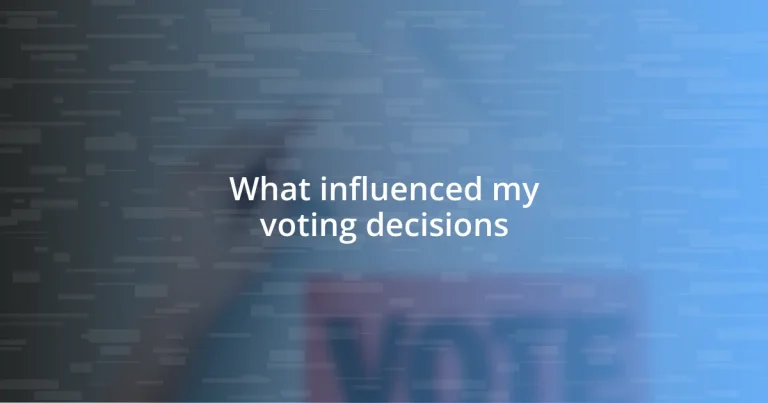Key takeaways:
- Personal values and beliefs, shaped by upbringing and discussions, significantly influence voting decisions.
- Peer influence and social interactions, including media exposure, can lead to critical reconsideration of political views.
- Demographic factors like income level and age drive individuals toward candidates addressing their immediate needs and concerns.
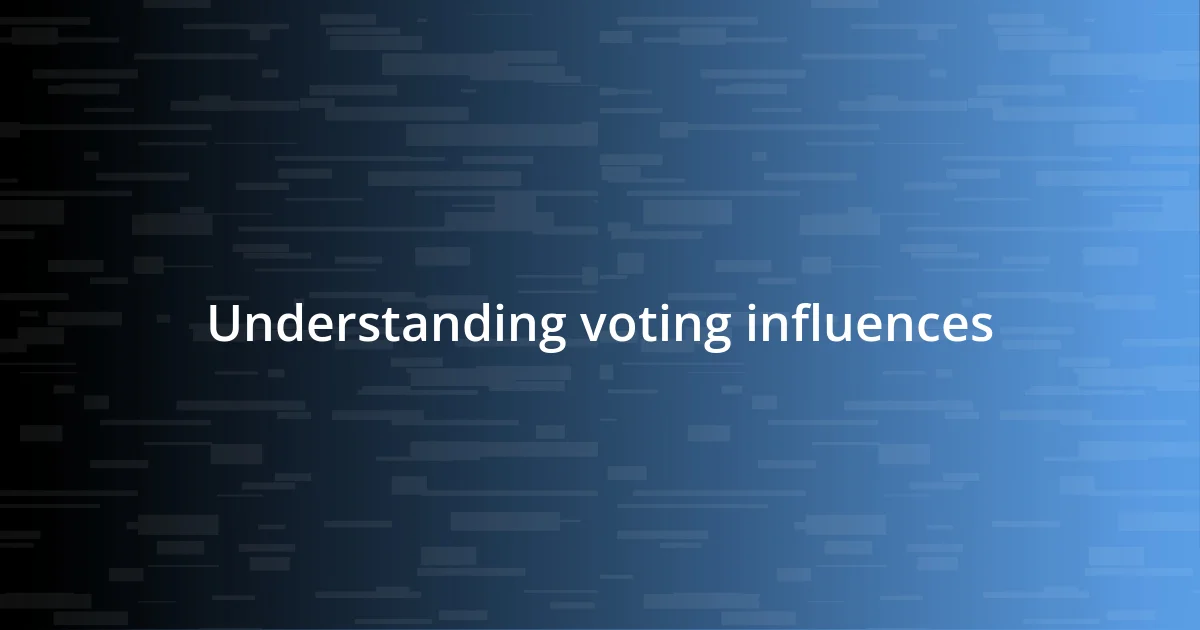
Understanding voting influences
Understanding the influences on my voting decisions is like peeling back layers of an onion. Each layer reveals something new—be it family, peers, or societal norms. I often find myself pondering: how much of my choice truly reflects my beliefs versus the influence of those around me?
As I reflect on my voting experiences, I can recall heated discussions with friends that swayed my perspective entirely. Their passionate arguments challenged me to see issues from different angles. I can’t help but wonder, do we always recognize when someone’s opinions resonate with us deeply enough to sway our votes?
The media also plays a significant role in shaping our voting influences. I remember being swamped with news coverage just before an election—images and sound bites flood the senses. It makes me ask myself: To what extent does this barrage of information shape our decisions, and can we trust that it’s presenting the whole story?
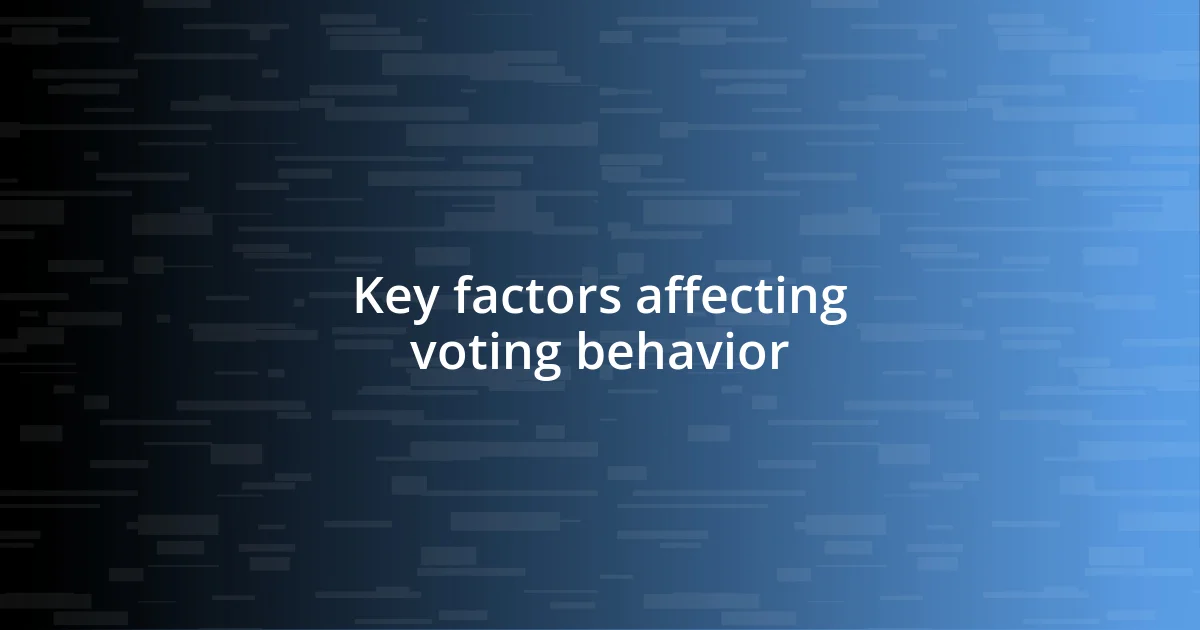
Key factors affecting voting behavior
Certainly! Here’s how I would dive into the key factors affecting voting behavior:
Personal values and beliefs stand at the forefront of my voting decisions. I often think about the values instilled in me by my parents and how they shape my views on social justice and equality. Remember that time an old friend and I got into a deep discussion about healthcare? It highlighted just how much my underlying beliefs dictate my stance on candidates and policies.
Another influential factor is peer pressure. Sometimes, it feels like a friendly competition to see whose political opinions are the loudest. I recall one election season when I attended a gathering where everyone passionately discussed their preferred candidates. It was surprising how much their enthusiasm seeped into my own convictions, making me second-guess my choices.
Finally, economic conditions can heavily sway my voting behavior. When my job security was threatened during a recession, I found myself gravitating toward candidates promising economic reforms. It’s interesting how our personal circumstances often dictate the qualities we seek in a candidate, reflecting our immediate needs and concerns.
| Factor | Description |
|---|---|
| Personal Values | Shapes beliefs around issues like social justice. |
| Peer Influence | Enthusiasm from friends can sway opinions. |
| Economic Conditions | Immediate needs guide candidate preferences. |
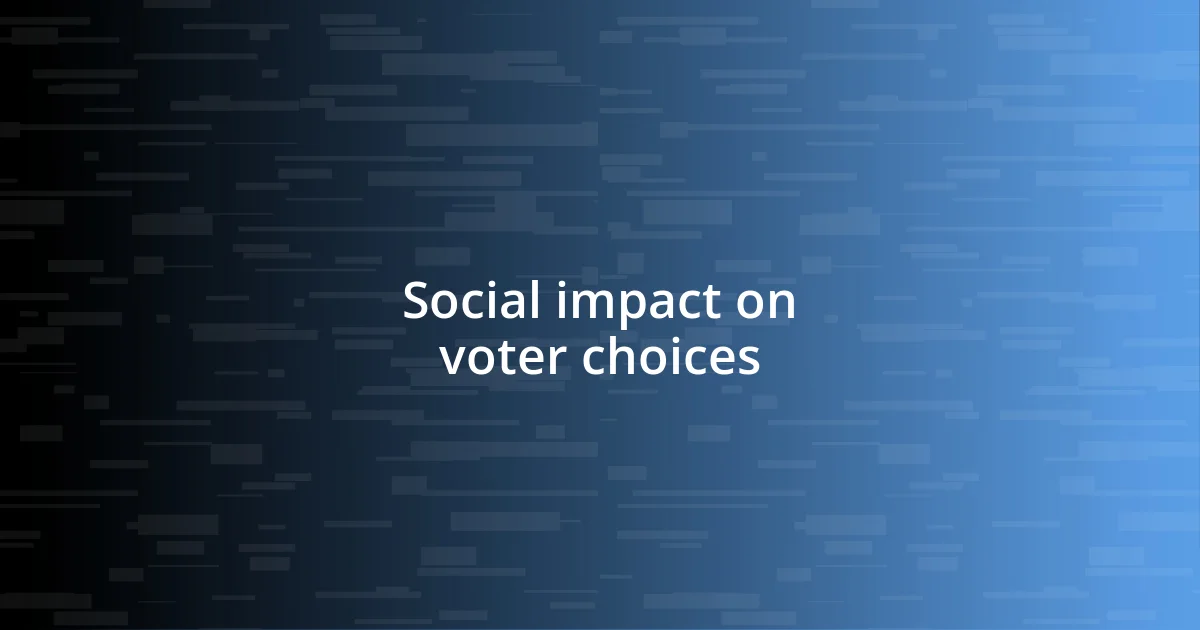
Social impact on voter choices
Social interactions often create a ripple effect that influences voting decisions in ways we may not even realize. I vividly remember chatting with a neighbor over coffee during an election year. Her heartfelt stories about local issues, like the need for better schools, struck a chord with me. This kind of dialogue can subtly steer our choices, as we absorb the values and beliefs shared by those we know and trust.
- Conversations at social gatherings can compel us to reconsider our views.
- Engaging with family during holidays often leads to deeper insights about issues.
- Local community events frequently highlight the pressing concerns that sway votes.
It’s compelling how social media also impacts our choices today. I often find myself scrolling through my feed, coming across vivid posts and stories that share real-life experiences. When a friend posted about their struggle with healthcare access, it made me reflect on the candidates’ policies more critically than I had initially planned. The emotional weight of these shared experiences can sometimes eclipse our own research, leading to choices influenced by empathy rather than purely political analysis.
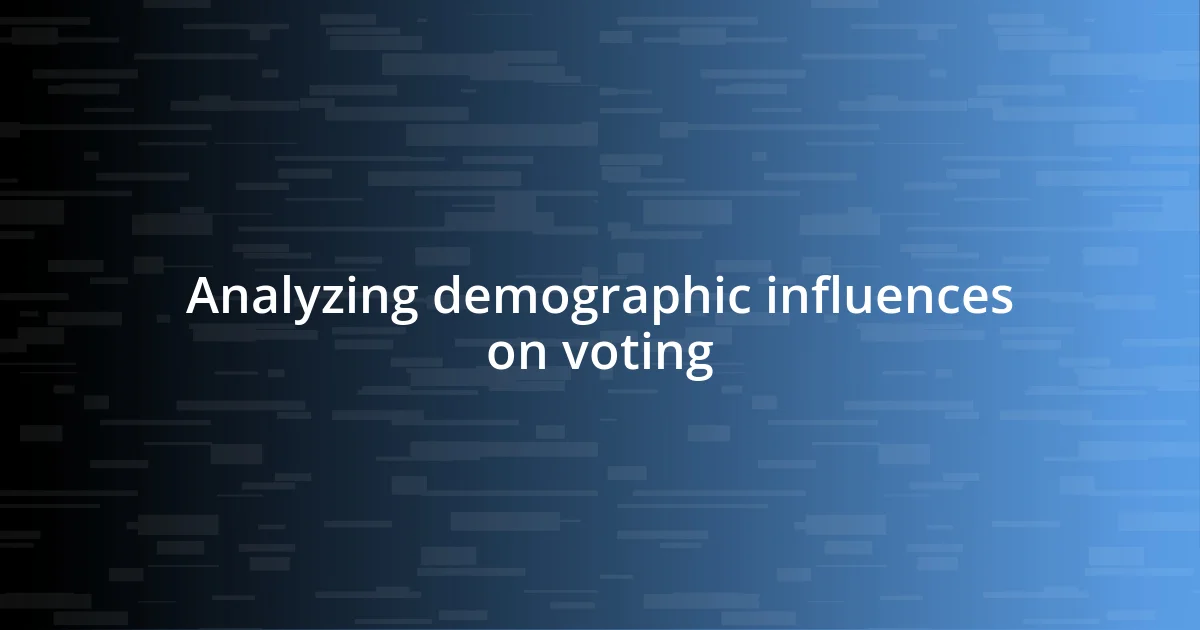
Analyzing demographic influences on voting
When I think about how my demographic background affects my voting choices, I can’t help but reflect on my upbringing. Growing up in a multicultural community opened my eyes to diverse perspectives. I remember a particularly lively debate during a community festival about immigration policies. Listening to different voices made me realize how my own racial and cultural identity shaped my priorities at the polls.
Another aspect I’ve noticed is income level. I’ll never forget how my financial struggles in college influenced my interest in candidates advocating for student loan reforms. It’s intriguing to think about how, in times of economic hardship, people like me gravitate toward candidates who resonate with our struggles. How do financial worries motivate your voting decisions? It certainly adds a layer of urgency to the issues that matter.
Moreover, age plays a crucial role in shaping our outlook. Reflecting on my experiences with peers, I often see younger voters mobilizing around climate change initiatives. It’s just fascinating to witness how our generational perspectives create a sense of urgency around the issues we champion. The candid conversations I’ve had during community activism show me that our collective demographic experiences can indeed redefine voter priorities and energy in elections.












